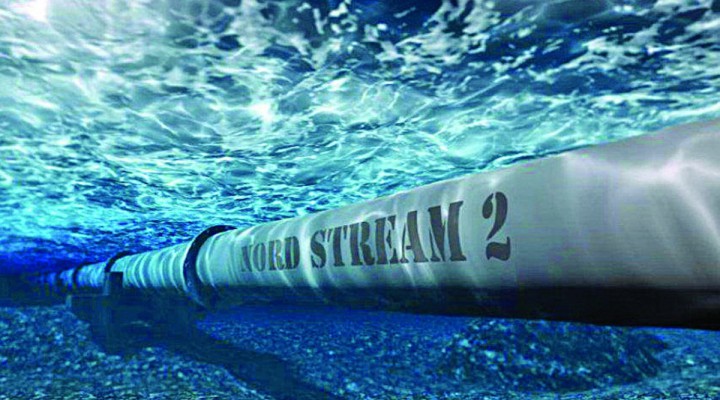A Pipelineistan fable for our times

Ukraine was supposed to prevent Russia from deepening energy ties with Germany; it didn’t work out that way
Once upon a time in Pipelineistan, tales of woe were the norm. Shattered dreams littered the chessboard – from IPI vs. TAPI in the AfPak realm to the neck-twisting Nabucco opera in Europe.
In sharp contrast, whenever China entered the picture, successful completion prevailed. Beijing financed a gas pipeline from Turkmenistan to Xinjiang, finished in 2009, and will profit from two spectacular Power of Siberia deals with Russia.
And then there’s Ukraine. Maidan was a project of the Barack Obama administration, featuring a sterling cast led by POTUS, Hillary Clinton, Joe Biden, John McCain and last but not least, prime Kiev cookie distributor Victoria “F**k the EU” Nuland.
Ukraine was also supposed to prevent Russia from deepening energy ties with Germany, as well as other European destinations.
Well, it did not exactly play like that. Nord Stream was already operational. South Stream was Gazprom’s project to southeast Europe. Relentless pressure by the Obama administration derailed it. Yet that only worked to enable a resurrection: the already completed TurkStream, with gas starting to flow in January 2020.
The battlefield then changed to Nord Stream 2. This time relentless Donald Trump administration pressure did not derail it. On the contrary: it will be completed by the end of 2020.
Richard Grennel, the US ambassador to Germany, branded a “superstar” by President Trump, was furious. True to script, he threatened Nordstream 2 partners – ENGIE, OMV, Royal Dutch Shell, Uniper, and Wintershall – with “new sanctions.”
Worse: he stressed that Germany “must stop feeding the beast at a time when it does not pay enough to NATO.”
“Feeding the beast” is not exactly subtle code for energy trade with Russia.
Peter Altmaier, German minister of economic affairs and energy, was not impressed. Berlin does not recognize any legality in extra-territorial sanctions.
Grennel, on top of it, is not exactly popular in Berlin. Diplomats popped the champagne when they knew he was going back home to become the head of US national intelligence.
Trump administration sanctions delayed Nordstream 2 for around one year, at best. What really matters is that in this interval Kiev had to sign a gas transit deal with Gazprom. What no one is talking about is that by 2025 no Russian gas will be transiting across Ukraine towards Europe.
So the whole Maidan project was in fact useless.
It’s a running joke in Brussels that the EU never had and will never have a unified energy policy towards Russia. The EU came up with a gas directive to force the ownership of Nord Stream 2 to be separated from the gas flowing through the pipeline. German courts applied their own “nein.”
Nord Stream 2 is a serious matter of national energy security for Germany. And that is enough to trump whatever Brussels may concoct.
And don’t forget Siberia
The moral of this fable is that now two key Pipelineistan nodes – Turk Stream and Nord Stream 2 – are established as umbilical steel cords linking Russia with two NATO allies.
And true to proverbial win-win scripts, now it’s also time for China to look into solidifying its European relations.
Last week, German chancellor Angela Merkel and Chinese premier Li Keqiang had a video conference to discuss Covid-19 and China-EU economic policy.
That was a day after Merkel and President Xi had spoken, when they agreed that the China-EU summit in Leipzig on September 14 would have to be postponed.
This summit should be the climax of the German presidency of the EU, which starts on July 1. That’s when Germany would be able to present a unified policy towards China, uniting in theory the 27 EU members and not only the 17+1 from Central Europe and the Balkans – including 11 EU members – that already have a privileged relationship with Beijing and are on board for the Belt and Road Initiative.
In contrast with the Trump administration, Merkel does privilege a clear, comprehensive trade partnership with China – way beyond a mere photo op summit. Berlin is way more geoeconomically sophisticated than the vague “engagement and exigence” Paris approach.
Merkel as well as Xi are fully aware of the imminent fragmentation of the world economy post-Lockdown. Yet as much as Beijing is ready to abandon the global circulation strategy from which it has handsomely profited for the past two decades, the emphasis is also on refining very close trade relations with Europe.
Ray McGovern has concisely detailed the current state of US-Russia relations. The heart of the whole matter, from Moscow’s point of view, was summarized by Deputy Foreign Minister Sergei Ryabkov, an extremely able diplomat:
“We don’t believe the US in its current shape is a counterpart that is reliable, so we have no confidence, no trust whatsoever. So our own calculations and conclusions are less related to what America is doing …. We cherish our close and friendly relations with China. We do regard this as a comprehensive strategic partnership in different areas, and we intend to develop it further.”
It’s all here. Russia-China “comprehensive strategic partnership” steadily advancing. Including “Power of Siberia” Pipelineistan. Plus Pipelineistan linking two key NATO allies. Sanctions? What sanctions?
 TheAltWorld
TheAltWorld 
0 thoughts on “A Pipelineistan fable for our times”